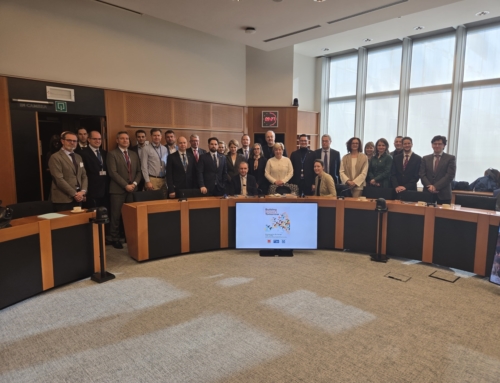6th of July 2023
On the 27th of June, FAFCE attended the High-Level Policy Expert Workshop organised online by Population Europe in the frame of the “Towards a Resilient Future of Europe” (FutuRes) project, with the support of the European Commission. Population Europe is a network of research centres focusing on population-related studies that are relevant for European policies. By organising conferences, workshops and stakeholders’ meetings with politicians and experts they bring attention to demography and its challenges.
The High-Level Policy Expert Workshop aimed to give an overview of what “resilience” means for ageing populations, by focusing on life course, social networks, intergenerational links, and policies in this regard. The introductory remarks from experts and decision-makers from research, business, civil society, and politics sectors were followed by discussions in subgroups.
FAFCE Policy and Research Assistant, Maria Waszkiewicz, took part in the Fertility and Childbearing workshop that focused on the role of fertility and childbearing decisions in a “resilient life-course” and tried to answer the question: “How does this connect with family and friendship networks, welfare provision and wellbeing later in life?”. FAFCE highlighted that this resilience is built by ensuring the right and favourable conditions for parents to have the number of children they want and brought attention to the importance of the recognition of the high-quality unpaid work in families, work-life balance, as well as the problem of maternity mobbing in the workplace, that discourages women from starting a family. Other participants tackled the issues of ageing populations and its impacts, the role of resilience in individuals’ life-course, and the way migration may mitigate risks that rise from the demographic changes.
Later, FAFCE followed the FutuRes Policy Lab Dialogue: Work Better to Work Longer? Quality of Working Life as Key to a more Resilient Labour Market. During the debate, that saw the participation of Member of the European Parliament (MEP) Beatrice Covassi (Italy, S&D), Massimiliano Mascherini (Head of the Social Policies unit at EuroFound), Arnstein Aassve (Bocconi University), Jutta Allmendinger (President of the WZB Berlin Social Science Center) and Ulrich Becker (Director of the Max Planck Institute for Social Law and Social Policy, Munich). An interesting point was raised by Ulrich Becker, who mentioned the importance of the lifelong learning, family time as well as stressed that we should strive for better quality of work in general, not only in order to work longer.
FAFCE hopes that through events like this one the crucial role of families and family networks in the demographic changes will be recognised. It is indeed key to focus on family-centred policies across Europe on every level in order to efficiently respond to current and future demographic challenges. FAFCE President, Vincenzo Bassi, mentioned recently: “We cannot limit ourselves to a mere management of the demographic transition: realistic solutions can be found, putting families and family networks at the centre, key factors of social and economic cohesion”.







